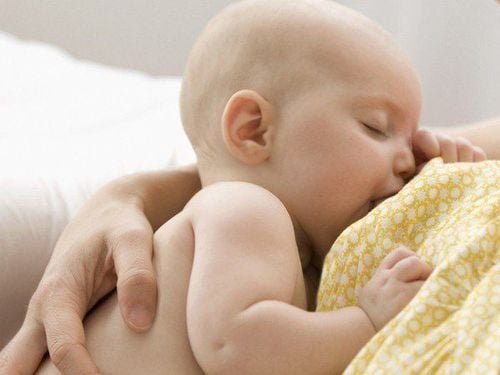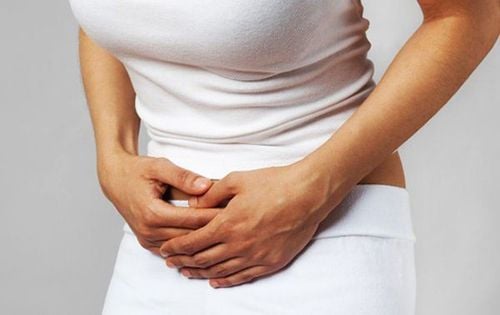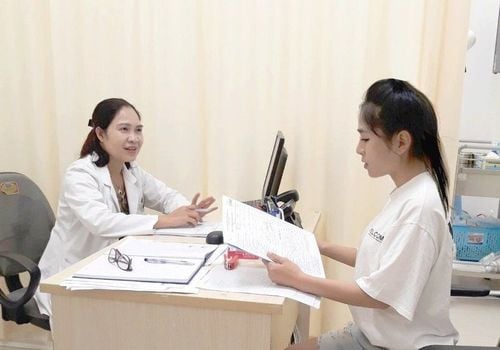This is an automatically translated article.
The article is expertly consulted by Master, Doctor Le Nhat Nguyen - Obstetrician-Gynecology Specialist - Vinmec Danang International General Hospital.After the baby is born, the mother's body gradually restores the changes in pregnancy and birth. Taking care of a newborn usually takes up most of the time, but a postnatal check-up is just as important. Mothers must try to rest and relax as much as possible.
1. The discomforts of women in the postpartum period
Seeing your doctor regularly is important for a healthy pregnancy, but regular postpartum and between-pregnancy checkups shouldn't be overlooked either. Most women feel their health decline after giving birth, mainly due to the following unpleasant problems:Retraction of the uterus After the placenta is removed, the uterus will contract into a sphere. On the first day, the fundus of the uterus is about 13cm high, on average it decreases 1cm per day. After 12-13 days, the uterus has shrunk just enough to fit in the pelvis and is no longer palpable on the abdomen. The recovery of the uterus in first-time mothers and breastfeeding will be faster, depending on the location and number of births of each woman. The infected uterus will retract more slowly.
Bleeding Vaginal bleeding can occur at any time in the 2 - 6 weeks postpartum. Breastfeeding helps your baby stop bleeding faster. Initially, the discharge will be bright red and profuse, gradually decreasing and turning light brown, lasting until the first period. Postpartum women need to use regular tampons to absorb the discharge, should not use tampons inserted in the vagina to avoid infection.
Perineal suture If the episiotomy is torn or cut, the suture should be checked for swelling, bruising, redness, pain, hematoma... or not. Pregnant women need to apply antiseptic medicine 3 times a day, clean when urinating, regularly change tampons, avoid prolonged wetness, which will slow healing and easy infection, practice urinating, sit up walking, avoiding constipation... The doctor will give antibiotics for 5 days, if stable and sewn with undigested sutures, the sutures will be removed on the 5th day after birth.

Bladder Mother has to urinate more in the first few days to get rid of the excess water left in pregnancy. Urinating will be difficult at first because of the pain, but try to practice urinating as soon as possible, by getting up and walking to help the urine flow stronger. If there are stitches, rinse with warm water to relieve the pain.
2. Postpartum and inter-pregnancy health care
In their newly published recommendations, American obstetricians and gynecologists emphasize that all women of childbearing age who have become pregnant (even if you haven't actually had a baby due to a miscarriage or abortion) are focus on health care. Taking care of your health after delivery and between pregnancies helps keep you mentally and physically healthy in the long run, and increases your chances of a successful pregnancy if you decide to have more children.The US health sector is working to reduce maternal mortality by ensuring that the health of a woman who has just given birth is given the same attention as that of a newborn baby. Health care between pregnancies can include:
A guide to breastfeeding that's good for you and your baby Fertility planning Detecting and treating postpartum depression Helping to lose weight and get in shape Financial and legal support if disadvantaged, single mother or in an abusive relationship Ensure adequate food or housing resources. Get screened for certain chronic conditions regularly, especially if you have a high-risk pregnancy.

After 9 months and 10 days of heavy weight, pregnant women go into labor and face a level of labor pain comparable to 20 broken ribs at the same time. In order for the birth to go smoothly and safely, pregnant women need to understand: - How the labor process takes place, how long does it usually take to have a normal delivery or cesarean section, to protect the best health? for the unborn baby.
Methods to relieve pain during childbirth, limit pain and relieve psychological pressure during labor. The way to push and breathe during childbirth is usually the right way so that the labor takes place quickly, the pregnant woman does not lose strength during childbirth. How to control postpartum uterine contractions in the shortest time. How to take care of the perineal suture does not cause infection and dangerous complications. Early postpartum re-examination to detect dangerous abnormalities such as residual placenta, missing gauze. Take care of the newborn until full month healthy. To ease the pain of childbirth, Vinmec offers a full Maternity program with a complete "painless delivery" service during and after birth using non-morphine epidural and sedation techniques. ashamed. During the birth process, the mother will be guided by the midwives on how to push and breathe properly, the baby will be born in just 10-15 minutes. After birth, the baby will be cared for in a sterile room before being returned to the mother.
Pregnant women will rest in a high-class hospital room, designed according to international hotel standards, 1 mother 1 room with full facilities and modern equipment. Mothers will be consulted by nutritionists on how to feed the baby before being discharged from the hospital. Postpartum follow-up with both mother and baby with leading Obstetricians and Paediatricians.
Postpartum and interpregnancy health care is an opportunity for women to deal with complications and medical issues that develop during pregnancy, to have their mental and physical health assessed by a medical professional , thereby optimizing health throughout life. Most people only focus on the health of the baby, but for mothers to focus on taking care of themselves is also meaningful and necessary.
Please dial HOTLINE for more information or register for an appointment HERE. Download MyVinmec app to make appointments faster and to manage your bookings easily.
Reference source: babycenter.com










